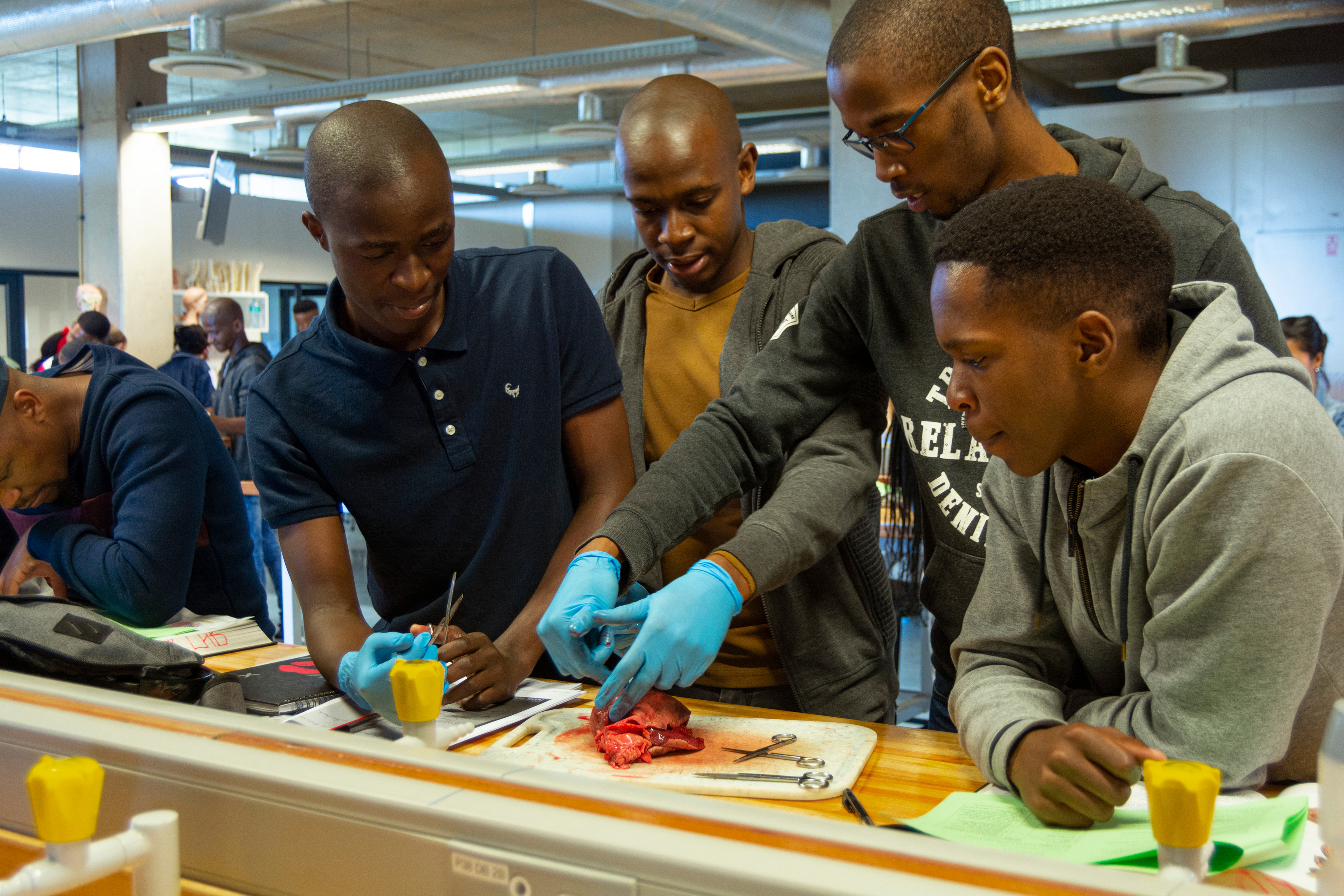In a world grappling with challenges like climate change, poverty, and health crises, the need for innovative solutions is more urgent than ever. Education is crucial in addressing these global issues, whether it’s developing new technologies to combat environmental threats, finding ways to reduce inequality, or advancing healthcare in underserved regions.
At Nelson Mandela University‘s Faculty of Science, you’ll find South Africa’s most diverse learning environment, deeply inspired by the legacy of Nelson Mandela. Here, education is about making a real difference in the world — something the faculty embodies. For example, they are tackling the Western Indian Ocean (WIO) Climate Crisis.
Ninety percent of global warming affects the ocean, with its temperature rising greatly since 1955. The past decade was the warmest, and 2023 was the hottest year on record. The western Indian Ocean, home to nine countries, including Seychelles and Kenya, is warming rapidly. This impacts 60 million people who rely on the ocean for food and livelihoods, as small-scale fisheries depend on healthy coral reefs and mangroves. These habitats are under threat, reducing fish catches and causing food insecurity.
To tackle this, Professor Michael Roberts and his team have been researching the issue and predicting future changes. They’re pushing for global and national action to address the “WIO Climate Crisis” and protect local communities.

Nelson Mandela University encourages students and staff to think beyond daily routines to achieve their vision, mission, values, and strategic goals, which requires stepping out of their comfort zones. Source: Nelson Mandela University
The faculty is involved in other endeavours, such as transforming pineapple waste into a water treatment marvel, advancing indigenous knowledge systems through in vitro bioactivity screening, finding alternative uses for waste tyres, and more.
The faculty’s “Strategy 2030” reflects its ambitious vision. As the only university named after Mandela, it embraces an Africa-centred approach, integrating the Ubuntu philosophy of communalism into its curriculum, research, and innovation. This strategy is big on collaboration, aligning with the UN Sustainable Development Goals, Africa Agenda 2063, and South Africa’s scientific development plans.
The goal is clear: to create a world-class, engaged, and transdisciplinary Faculty of Science with a distinct African focus. The faculty aims to respond to socio-economic and environmental challenges, offering a curriculum that addresses these issues and influences global trends. With a number of South African Research Chairs and National Research Foundation-rated scientists, the faculty has the experts to do just that.
For example, Professor Janine Adams, Deputy Director of the Institute for Coastal and Marine Research, focuses on the conservation and management of estuaries. Her work improves our ability to manage these vital ecosystems and informs policies that protect them, helping with flood prevention and supporting local tourism.
Another exciting project involves making drug production more local. During the COVID-19 pandemic, South Africa realised the importance of producing essential drugs locally. Professor Paul Watts leads a research group working on flow chemistry to create drug ingredients at home instead of importing them. This could lower drug prices by 20% to 30%, making essential medicines more affordable.

Nelson Mandela University offers transformative science-based education and experiences to develop graduates and staff with strong attributes for sustainable futures. Source: Nelson Mandela University
To join their ranks, you can start by joining one of the faculty’s postgraduate programmes. There are master’s degrees in fields like Geography, Commerce, Agriculture, Applied Mathematics, Biochemistry, and Zoology. Doctoral programmes are available in Agriculture, Biochemistry, Chemistry, Computer Science, and Information Systems, among others.
Nelson Mandela University encourages students to think creatively and challenge the status quo. PhD candidate Sandiso Ngwenya is a great example. His research focuses on synthesising Coumarin compounds, which are important for making active pharmaceutical ingredients. Using continuous flow chemistry — a new technology in Africa — he aims to develop a cost-effective method for producing these compounds.
“Continuous flow chemistry, also known as micro-reaction technology (MRT), uses miniature-sized reactors that allow for chemical reactions to be uninterrupted in controlled systems,” he says. This offers several advantages such as shorter reaction times, better selectivity towards desired products, reduced by-products from reactions, and increased yields for reactions, among many others.”
Continuous flow chemistry enables local on-demand production of Active Pharmaceutical Ingredients, reducing costs and making medicines more accessible.
The best part? Students also benefit from top-notch research facilities like InnoVenton, the Downstream Chemicals Technology Station, the Centre for High Resolution Transmission Electron Microscopy, and the Sustainability Research Unit. These spaces provide hands-on experience, helping graduates gain vital exposure in their fields while training them with key skills like critical thinking, communication, and problem-solving.
As part of Nelson Mandela University, they are set to make a major impact both in Africa and the world.
Learn more about the Faculty of Science at Nelson Mandela University.
Follow Nelson Mandela University on Facebook, X, Instagram, YouTube, and LinkedIn










